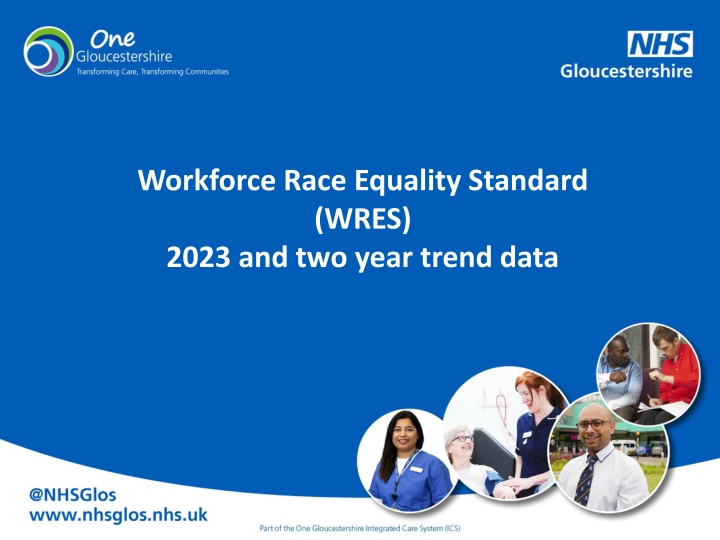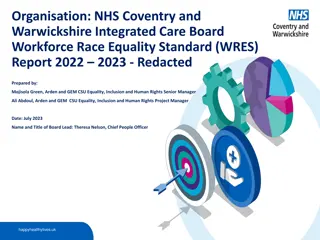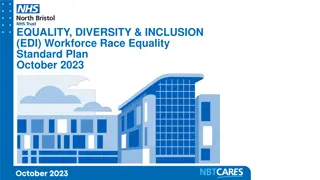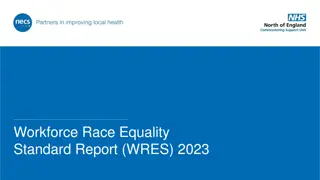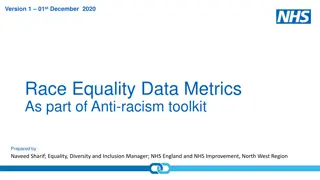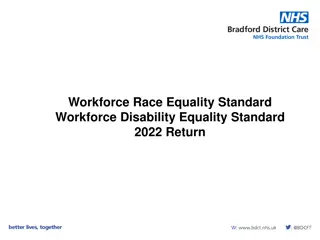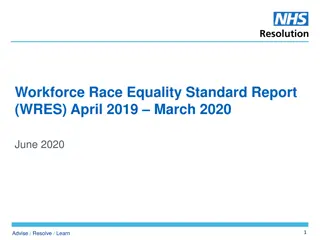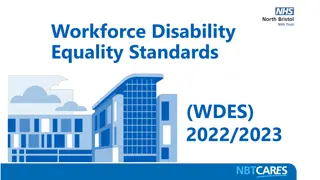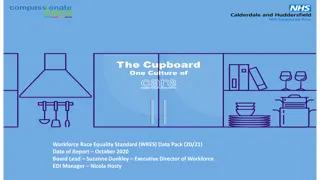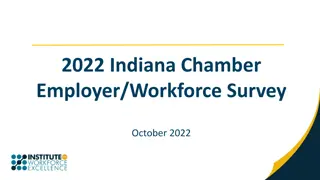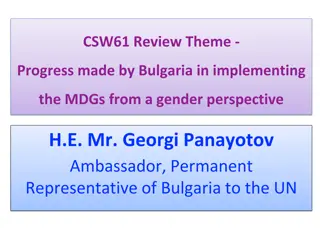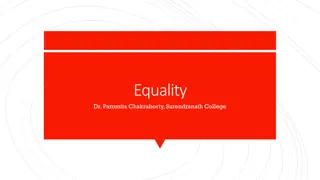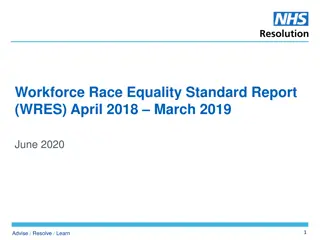Workforce Race Equality Standard (WRES) 2023 & Two-Year Trend Data
Discover insights from the Workforce Race Equality Standard (WRES) 2023 report, analyzing trends and disparities in staff experiences based on ethnicity. Explore data on harassment, bullying, opportunities, and more within NHS organizations."
Download Presentation

Please find below an Image/Link to download the presentation.
The content on the website is provided AS IS for your information and personal use only. It may not be sold, licensed, or shared on other websites without obtaining consent from the author.If you encounter any issues during the download, it is possible that the publisher has removed the file from their server.
You are allowed to download the files provided on this website for personal or commercial use, subject to the condition that they are used lawfully. All files are the property of their respective owners.
The content on the website is provided AS IS for your information and personal use only. It may not be sold, licensed, or shared on other websites without obtaining consent from the author.
E N D
Presentation Transcript
Workforce Race Equality Standard (WRES) 2023 and two year trend data 1
Workforce Race Equality Standard (WRES) WRES - introduced in 2015, following analysis of experiences of colleagues from non-white ethnicity, indicating they experienced discrimination at work in the NHS. Aimsto enable organisations to analyse & close gaps between the work experiences of non-white ethnic staff compared with white colleagues. Part of the Standard NHS Contract & the report & actions from each Trust are published annually on Trust websites. Consists of 9 metrics, taken from ICB data & the Annual NHS Staff Survey. NB. that the data on ethnicity is taken from ESR and from staff disclosure when completing the application form. Some staff may not disclose their ethnicity. 2
How to read the data To note the 2021 Census found that overall, 6.9% of the population in Gloucestershire were from an ethnic minority background (excluding white minorities). This was considerably lower than the national figure of 19.0% https://www.gloucestershire.gov.uk/media/uxvcfrsp/equality-profile- 2023.pdf Questions 1-4 and question 9 within the WRES come from ESR and are reported up until 31st March for 2023 and 31st March 2022. Note that it is based on the disclosure by staff of their ethnicity when they join the CCG/ICB NHS application form. Not all staff disclose. This data on the infographic show the average % of white staff and BME staff who work for the ICB over those two years, which was 8.36% The infographic shows the % of white staff and BME staff employed in clinical and non-clinical roles by a grouping of the pay bands as follows Band 4 Bands 5-7 Bands 8a to 8b and Bands 8c+ and VSM For non-clinical staff the majority of BME staff are employed band 7 and below; for clinical staff there is a greater % of BME staff in bands 8a and 8b, band 8c+VSM It is also show the % of white and BME board members over those two years for example in 2023 the ICB board comprised 94% of white board members compared to 6% of BME board members. The data shows that over the past 2 years white candidates have a greater chance of being appointed following shortlisting for a job than a BME candidate The data shows that over the past 2 years BME staff members are more likely to enter the formal disciplinary process. The remaining 4 questions are taken from the previous years staff survey each year staff complete the survey in Oct Nov and in March of the following year it is reported. The past three years data is shown. The 2023 staff survey results for WRES will be made available in March 2024. 3
Workforce Race Equality Standard 1. Percentage of staff experiencing harassment, bullying, or abuse from patients/service users, relatives, or the public in the last 12 months: 2020 2021 2022 14.3% 11.8% 9.3% - 7.7% 0.0% 7.9% 9.7% 7.9% 7.7% 9.8% 8.3% 210 220 257 9 13 17 2. Percentage of staff experiencing harassment, bullying, or abuse from staff in the last 12 months: 2020 2021 2022 17.5% 11.8% 10.9% - 7.7% 17.6% 16.7% 13.6% 15.5% 24.2% 20.6% 20.0% 211 220 257 9 13 17
Workforce Race Equality Standard 3.Percentage of staff believing that the organisation provides equal opportunities for career progression or promotion: 2020 2021 2022 62.2% 66.1% 63.9% - 42.9% 41.2% 62.7% 65.3% 59.3% 31.5% 36.5% 38.3% 217 221 255 9 14 17 4. Percentage of staff experiencing discrimination at work from manager/team leader or other colleagues in last 12 months: 2020 2021 2022 5.5% 3.6% 3.5% - 0.0% 5.9% 3.9% 4.7% 4.5% 17.4% 12.7% 13.3% 218 220 256 9 14 17
Key Actions in 2023 Cultural awareness training provided to staff during 2023. The Building a Culture of Conscious Inclusion programme commenced in February 2023 ran for nine months with: 6 in person sessions (F-2-F) x half day for 140 leadership (Band 8+ and Board) 10 Module 1 virtual sessions x 1 hr sessions for 200 (Band 2-7), with a month gap in between for reflection. 10 Module 2 virtual sessions x 1 hr sessions for 200 (Band 2-7) Delivery Staff sessions - 128 colleagues have attended the virtual staff sessions. Evaluation Reports have been completed on the training and learning from these sessions Corporate Induction includes a session on Equality, Diversity and Inclusion as well as the BAME Network New policy on Zero Tolerance of Abuse of NHS staff in 2023 with dedicated incidence inbox and reporting 10,000 Black interns initiative commenced in 2023 ED&I objective included in the Appraisal & Objectives each member of staff to have an ED&I objective Continue with ED&I ICS wide schemes including Reciprocal Mentoring, Allyship and Flourish Programmes 7
